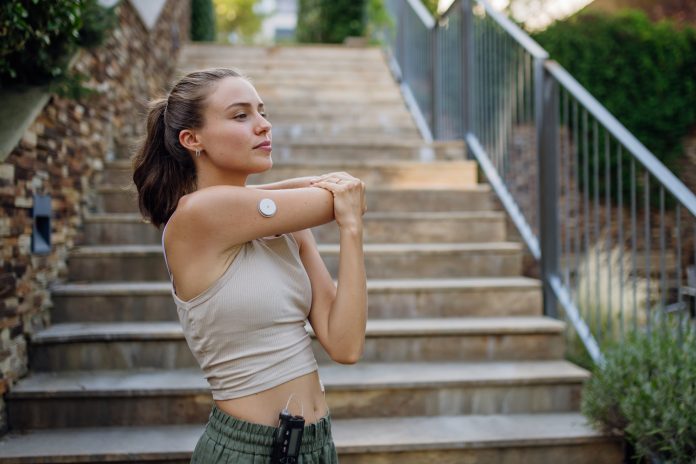Afon Technology is a leader in advanced medical technology focused on transforming diabetes care. Brad Love and Dan Fowles discuss how the company uses big data to create personalised health solutions that can significantly impact the lives of millions
Afon Technology, a pioneer in advanced medical technology, is set to transform the lives of people with diabetes through its groundbreaking innovation, GlucowearTM — the world’s first non- invasive, real-time, continuous blood glucose sensor.
The ultimate goal for artificial intelligence (AI) experts at Afon Technology is to go beyond conventional features by integrating cutting-edge technology to monitor glucose levels continuously and non-invasively.
In the rapidly advancing world of health tech, Welsh company Afon Technology shines as a leader in innovation, paving the way for a new era in personalised diabetes management.
As we look toward the future of healthcare technology, Glucowear emerges at the forefront, transforming what’s possible at the crossroads of health and technology.
The rise of AI in diabetes care
Advancements in digital health technologies, particularly AI, offer a promising path toward more efficient diabetes care, potentially slowing the rise in diabetes-related healthcare costs. By addressing key challenges in diabetes management, AI has the potential to ease the burden of this disease, improve outcomes, and make care more sustainable in the future.
AI promises transformative advancements in diabetes care for those who adopt digital tools like apps, insulin pumps, automated insulin delivery (AID) systems, and continuous glucose monitors (CGMs). For people already using CGMs, the benefits of machine learning are becoming increasingly apparent, signalling that the AI revolution in diabetes management is well underway, according to experts.
The improved time in range that most people with CGMs experience from tracking their glucose levels is the basic building block of future AI, data-driven advancements.
Afon Technology’s AI experts
AI experts at Afon Technology are driving innovation with a groundbreaking mission – developing technology capable of predicting blood glucose levels to help prevent serious complications for people with diabetes.
In this feature, Afon’s Brad Love and Dan Fowles delve into how the company leverages big data to revolutionise diabetes care, paving the way for personalised health solutions that could transform the lives of millions.
Brad is a Statistician at Afon with extensive experience working with statistics and big data in the biotech industry. Dan holds a PhD in AI and serves as an AI Data Analyst at the innovative Welsh tech firm. Together, they have developed the software, algorithms, and data analysis techniques that underpin much of what Afon does.
The ground-breaking needle-free CGM Glucowear uses low-power RF/ microwave technology to track and record real-time changes in blood glucose levels. According to Dan, the data gathered by the device can potentially transform how people manage their condition.
He said: “Typically, an individual’s glucose levels will change over time. There’ll be some kind of pattern based on their normal routines throughout the day or over weeks or months, so a pattern will emerge in this individual or over a group of individuals.
“With AI, we can learn those trends or use it to help with our predictions. By creating a device that is real-time, it provides you with almost instantaneously available glucose values. There is no delay, which may cause problems or risks associated with lower or higher glucose values.”
He added: “When your blood glucose suddenly starts dropping dramatically, that generally means that you are a short time away from passing out or losing consciousness. And if you can intervene, you can prevent this medical issue. If your blood glucose is shooting up rapidly, you want to start taking insulin immediately to knock that down.
“The more that your blood glucose starts bouncing back and forth, the more it starts to accumulate damage inside your body. So, the real-time aspect really allows you to start taking action on what your body is doing and to help you blunt that effect on your system.”
Brad said one of the biggest challenges in AI is accommodating the differences between people: “There is a tremendous difference between how people’s glucose behaves – we’re starting to learn this; not just blood glucose, but how other psychological parameters react.”
What happens when big data ‘flexes its muscles’?
Although Brad and Dan agree that AI’s effectiveness depends on the quality of the information it receives, its ability to deliver a broad analysis of trends while also offering tailored insights has the potential to benefit all individuals managing diabetes.
Brad explained: “AI is continually collecting data, and as you ask more questions, it will help provide you the answers. This is where big data really starts to flex its muscles.
“We can actually start to have the app ask you questions like, “What did you just eat?” and we can start to learn. Then, as we accumulate this for more and more folks, we can crowd-surf information, see how people’s bodies are reacting, and share that knowledge.
“The idea of what can be done is tantalising to me. I think that’s the vision of personalised medical tracking that we start to see.”
Both Brad and Dan are excited about the prospect of using data and AI to predict blood glucose levels, enabling people to take preventative action. They say this idea of using past blood glucose readings to predict future levels and provide bespoke health solutions is the “long-term vision.”
Brad continued: “I think that is the good long-term goal. Good AI, algorithms and tools, in general, allow you to build information and knowledge.
“The technology tells us what’s happening right now regarding blood glucose, which is great. Turning it around and letting us know what’s going to happen in 15, 20, or even 30 minutes from now allows individuals to take action and prevent a bad situation – that’s a goal.”
Despite the challenges of developing and testing AI, Brad said the satisfaction lies in getting it right: “When it all works, and you say this is what the blood glucose is, and then somebody looks at the blood results, and you’re like, wow, there it is – that’s the beauty. And to know in the background how many things had to go right. It’s not just about software, it’s not just about statistics, not about hardware – it’s knowing that the dedication of the whole team made this magic happen, and that is really quite incredible.”

This work is licensed under Creative Commons Attribution-NonCommercial-NoDerivatives 4.0 International.











